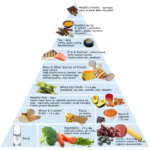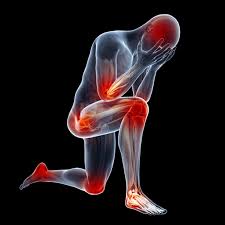Evaluating your diet is a powerful tool in the fight for optimal health. Making good food choices means reducing your chances of heart disease, diabetes, and other major illnesses. A healthy diet can also support mental health, provide the energy you need to remain active, and keep you out of the physical therapy office.
Diet and exercise have always been two words associated with weight loss and health. It’s no surprise considering the different effects food has on the body–both good and bad. While nutrition (or lack thereof) is often talked about in relation to other aspects of wellness or illness, it’s often undercredited as a major contributor to inflammation, which in turn is a significant cause of disease and chronic pain.
 It’s important to understand that not all inflammation is bad. After all, inflammation is a critical part of healing from many illnesses and injuries. However, certain conditions are the result of the body having a hyperactive response to what it perceives as an invader, resulting in inflammation. This can become a vicious cycle where the body remains inflamed consistently rather than just as a response to illness or injury. The result is a group of ailments commonly known as inflammatory diseases, which can be chronic, such as in the case of chronic arthritis.
It’s important to understand that not all inflammation is bad. After all, inflammation is a critical part of healing from many illnesses and injuries. However, certain conditions are the result of the body having a hyperactive response to what it perceives as an invader, resulting in inflammation. This can become a vicious cycle where the body remains inflamed consistently rather than just as a response to illness or injury. The result is a group of ailments commonly known as inflammatory diseases, which can be chronic, such as in the case of chronic arthritis. 
During an inflammatory response, your body produces a motherload of white blood cells, immune cells, and cytokines to fight off infection. It’s an amazing battle attack plan if you’re coming down with a bug. It’s not so great, however, if your body receives the wrong signal and perpetually responds as if there was an invader. The result of this information misfire is chronic inflammation.

Foods are blamed as one possible cause for this response. For example, the American Journal of Clinical Nutrition warns that processed sugars trigger the release of inflammatory messengers called cytokines. Some people with joint pain find relief by avoiding gluten (found in wheat, barley and rye), and/or casein, a product of dairy products. Inflammatory diseases can often be substantially improved or even reversed with diet changes such as these.
Note that in addition to diet, inactive lifestyle, obesity, and stress all contribute to chronic inflammation so improving your diet might be the catalyst you need to inspire a more active lifestyle. 
When it comes to identifying foods that actually cause inflammation in the body, most doctors agree an anti-inflammatory diet includes plant-based foods and excludes meats, dairy, and processed foods. For a better understanding of what plant-based means and how to prepare recipes with those guidelines in mind, a quick internet search will provide loads of information.
The most important thing to know is that one diet does not fit all. Every ‘body’ is different and, in turn, responds differently to foods. While one person can seemingly eat whatever they want without ill effect, another may feel achy from a single donut or bagel. There are many ways to find out what is the best diet for your system. Seek out a nutritionist, talk with your doctor, invest in food allergy testing, or take on an elimination diet removing one type of food at a time and evaluating the resulting changes.
As it pertains to physical therapy, eating the right foods can significantly reduce recovery time after an injury. It can also offer substantial benefits regarding the advancement and treatment of conditions like arthritis. Making the investment in your diet could improve your energy, focus, and quality of sleep. Proper nutrition can also reduce pain, achiness, and stiffness so you can perform your best.
